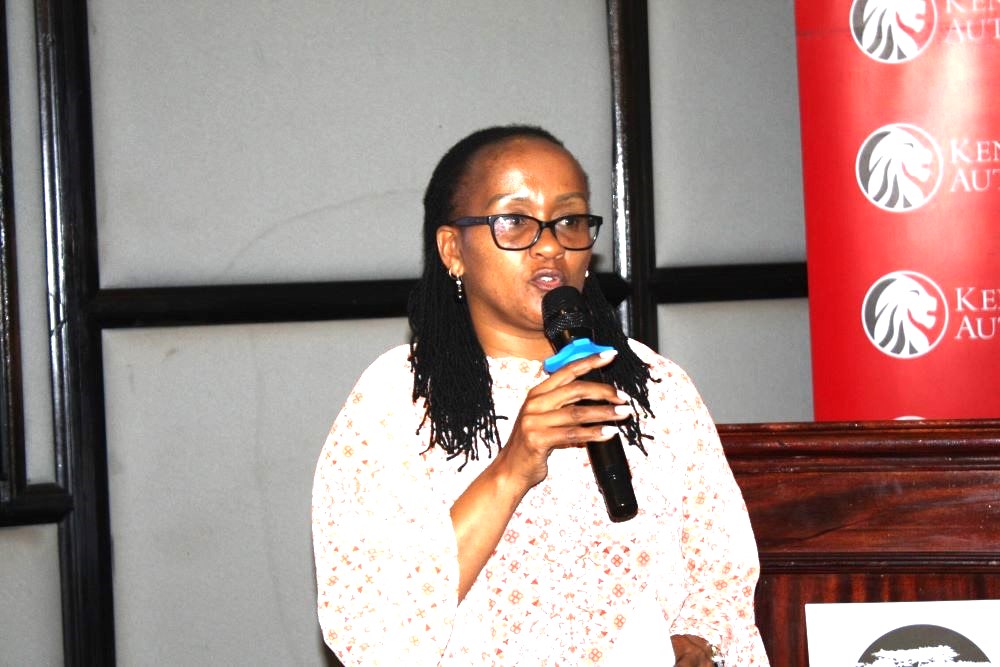Sometimes late last year, when news broke that the Jomo Kenyatta Foundation (JKF) had halted its publishing operations, I wasn’t surprised. I recalled the adorable Primary Mathematics! That was a gem. It is no longer on the shelves, thanks to the cartels.
In Kenya, super brands do not die natural deaths. They are quietly strangled to make way for new, corrupt offshoots. Remember Stage Coach? It didn’t collapse; it was killed so that someone could launch City Hopper. That is the Kenyan blueprint: destroy the trusted so that cronies can build empires. Do not be shocked if one day you discover that some of these new mushrooming publishing houses are owned – directly or through proxies – by individuals with influence at KICD. This is Kenya: a country where conflict of interest is not a crime but a career path.
For those who have lived long enough, you must have asked yourself why KICD stopped publishing books, yet the rest of us grew up consuming high-quality materials from the then Kenya Institute of Education (KIE). KIE gave us excellent textbooks, resource materials, and world-class radio lessons that shaped a generation. What exactly happened? How did an institution that once symbolised academic excellence reduce itself to a mere regulator? The answer lies in the cartelization of the book industry. Corrupt networks captured the space, suffocated the public publisher, and created fertile ground for kickbacks to flourish. This cancer is no longer at Stage 1; we are staring at a Stage 4 malignancy.
Books are not ordinary commodities. They nourish the mind the way food nourishes the body. They mould our perceptions, sharpen our judgment, and enrich our moral compass. A society that reads is a society that thinks—critically, independently, boldly. But what happens when the custodians of knowledge collapse morally? What happens when corruption becomes the qualification for a book entering a school? What happens when tendering becomes a marketplace for envelopes instead of ideas?
In Kenya today, corruption is the ghost writer of many school booklists. Parents whisper about it in markets. Teachers see it in staffrooms. Authors mumble about it in bitterness. Learners, innocent and trusting, are fed the consequences of decisions made in smoke-filled rooms where integrity is the only item missing from the table. When publishers win tenders through bribes, they steal far more than public money—they steal trust. They puncture faith in systems meant to uphold fairness. They normalise a culture in which academic merit is irrelevant and moral bankruptcy is a viable strategy.
A book that finds its way into classrooms because of kickbacks sends a louder message than the text inside it. It teaches learners that dishonesty pays. It tells teachers that professionalism is a joke. It informs parents that they must swallow injustice silently. The greatest tragedy is that the very books preaching integrity, perseverance, honesty, and duty are championed by publishers who practise the exact opposite. The hypocrisy is nauseating.
And at the centre of this rot lies the Kenya Publishers Association (KPA)—a body that once served as the industry’s moral compass but has today lost all sense of dignity. KPA has become a ceremonial relic, loud in title but mute in action. A watchdog that lost its bark. A referee who refuses to blow the whistle. A toothless dog watches thieves walk away with the carcass. Instead of offering leadership, it has become a polite spectator, issuing feeble statements only occasionally while corruption thrives under its nose.
Publishers whisper—only in private—about tenders predetermined long before advertisements appear. Everyone knows who will win. Everyone knows how. Manuscripts authored with sweat and scholarship never see the light of day because their writers lack connections. Schools are coerced into adopting overpriced, substandard books. A system meant to elevate knowledge now elevates mediocrity. Genuine effort is punished. Mediocre work, smuggled through bribes, gets rewarded.
Where is KPA? Present physically, absent morally.
The rot is philosophical. When institutions mandated to produce knowledge become corrupt, they damage more than policy – they damage the moral DNA of the nation. Learners internalise that institutions cannot be trusted. Teachers lose confidence in a system they have dedicated their lives to. Parents question why they must keep funding fraud. Authors become spectators of their own humiliation as undeserving works crowd out brilliance.
We are raising a generation taught by example that corruption is not merely surviving – it is thriving.
READ ALSO:
Wife of Prime CS calls for extended maternity leave for mothers of preterm babies
If Kenya is to preserve the soul of education, this rot must be confronted ruthlessly. There is no polite way to clean a swamp. The publishing industry requires a complete moral detox. Transparency must reclaim the procurement process. Merit must be restored as the only currency for book selection. Every book entering a classroom should do so because it earned its place, not because it was smuggled there through corrupt networks.
We must ask ourselves: how do we lecture children about honesty while feeding them the fruits of dishonesty? How do we expect learners to uphold integrity when the adults responsible for their education weaponise corruption for profit? Hypocrisy cannot be the foundation of an educational system.
The KPA leadership must own up to its failure. It has failed its members. It has been unable educators. It has failed learners. It has failed the nation. Leadership is not a ceremonial position – it carries moral weight. If they cannot protect the integrity of the industry they claim to steward, they must step aside. The honourable thing for them to do is to resign. Not tomorrow. Not next month. Now.
The industry needs fresh leadership—fearless, principled, immune to manipulation—individuals who understand that publishing is not just a business but a sacred responsibility. Books shape the thinking of a nation. They influence how children interpret the world. That task cannot be left to individuals who treat education as a feeding trough.
Kenya deserves better. Parents deserve better. Teachers deserve better. Authors deserve better. Learners – who trust us without question – deserve far better than the poisoned chalice they are currently forced to drink from.
Books feed our souls. But corruption is poisoning them at the source. If we continue drawing from this contaminated well, we will produce a generation hungry for truth but trained in lies. The book industry must cleanse itself before it collapses into irredeemable moral ruin.
The time for polite conversations is over. The time for excuses is over. The time for compromised committees and toothless resolutions is over. If the industry is to regain its honour, the old guards who have presided over its decay must leave.
Only then can we begin anew.
By Ashford Kimani
Ashford Kimani teaches English and Literature in Gatundu North Sub-county and serves as Dean of Studies.
You can also follow our social media pages on Twitter: Education News KE and Facebook: Education News Newspaper for timely updates.
>>> Click here to stay up-to-date with trending regional stories
>>> Click here to read more informed opinions on the country’s education landscape
>>> Click here to stay ahead with the latest national news.






